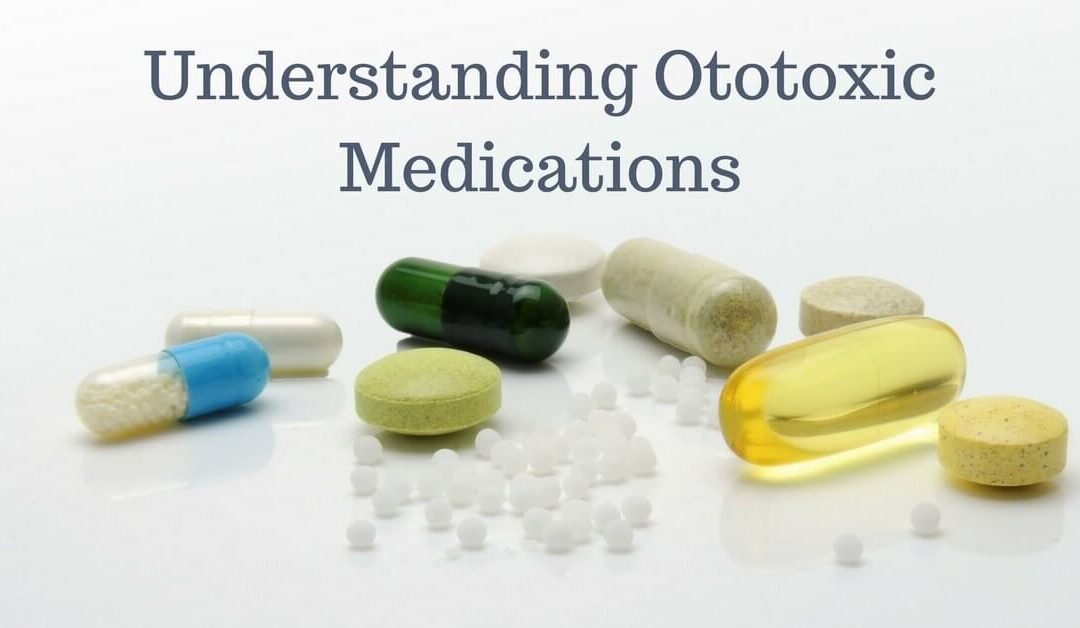People ingest medication on a daily basis, whether that be prescribed medication, over the counter remedies, or simple vitamins, medication is part of our lives. What if someone told you that some of these everyday medications could result in hearing loss and nobody told you? These are called Ototoxic Medications and in this blog, we are going to dissect what exactly these medications are and how they affect our bodies.

Ototoxic medications can be found in a variety of places. Aspirin, for example, is one of the most commonly used pain relievers and is believed to be ototoxic when taken in large quantities (over 300mg per day). This can lead to hearing loss or ringing in the ears.
Other ototoxic medications such as certain antibiotics and chemotherapy drugs, as well as some herbal supplements, may also cause hearing loss. Even though these medications are helpful in treating illnesses and diseases, it’s important to keep in mind that they can also come with risks and side effects that could affect your hearing.
How to Prevent Hearing Loss from Ototoxic Medication
The best way to prevent hearing loss due to ototoxic medications is by talking to your doctor about any concerns you have. Your doctor can help you understand how the medication might affect your hearing and what steps you should take to minimize the risk of side effects from these medications. Additionally, don’t take more than the recommended dose of a medication, even if you think it will help make symptoms go away faster.
If you have noticed any problems with your hearing, make sure to contact your doctor right away so they can evaluate if there is any connection between this symptom and ototoxic medications that you have been taking.
Your lifestyle choices could also play an important role in protecting your hearing health from ototoxic medications. Avoiding smoking and loud noise exposure can help reduce the risk of hearing damage over time. Furthermore, watching out for signs of dehydration – such as dizziness or fatigue – since dehydration puts additional stress on the body which could further impact your ability to hear clearly over time.
What if You Need Medications that Fall into the Ototoxic Category?
Although taking ototoxic medication carries a risk of damaging our sense of hearing, it is still often necessary for treating certain diseases or medical conditions. Therefore it’s crucial that we take extra care when using these types of medication, monitoring our own reactions and not overusing them without consulting our doctor first. With proper precautions and regular check-ups at the doctor’s office – we can avoid dangerous side effects like permanent hearing damage due to ototoxic medication usage.
Precautions You Can Take to Lessen Ototoxic Side Effects
In addition, it’s important to stay hydrated and get enough rest. Dehydration can cause an increase in ear wax production which could lead to blockage of the inner ear, thus making it harder for sound waves to be transmitted properly. Furthermore, fatigue both physical and mental can have a negative effect on hearing as well as your ability to think clearly. Therefore, it is important to get enough rest and stay hydrated in order to maintain healthy mental and physical functioning.
Finally, by making sure that our environment is optimal for hearing – we can take steps to ensure that we are giving ourselves the best chance of avoiding issues related to hearing loss. This includes reducing the volume on all audio devices (TVs, radios, etc.), wearing proper ear protection when exposed to loud noises such as concerts, and avoiding the use of headphones at high volumes. By taking these preventative measures, we can protect ourselves from further damage that may be caused by excessive noise exposure or improper care for our hearing.
Keeping our ears healthy is important in order to maintain good hearing health. This includes taking steps to reduce and manage exposure to loud noises, using proper ear protection in noisy environments, and taking care of our ears through regular maintenance. With the right knowledge and effort, we can ensure that our hearing remains healthy throughout our lives.
-RHI

